RTA’s integrated transport systems: The key to Dubai’s rapid urbanisation
- Like
- Digg
- Del
- Tumblr
- VKontakte
- Buffer
- Love This
- Odnoklassniki
- Meneame
- Blogger
- Amazon
- Yahoo Mail
- Gmail
- AOL
- Newsvine
- HackerNews
- Evernote
- MySpace
- Mail.ru
- Viadeo
- Line
- Comments
- Yummly
- SMS
- Viber
- Telegram
- Subscribe
- Skype
- Facebook Messenger
- Kakao
- LiveJournal
- Yammer
- Edgar
- Fintel
- Mix
- Instapaper
- Copy Link
Posted: 20 April 2023 | Hussain Al Banna - Dubai Roads and Transport Authority | No comments yet
Hussain Al Banna, CEO of Strategy and Corporate Governance at Dubai’s Roads and Transport Authority, discusses the key factors that are driving the success of RTA’s public transport systems and the organisation’s commitment to sustainability, as well as highlights what RTA is doing to expand and optimise Dubai’s public transport network in order to meet the growing demand for transportation services.
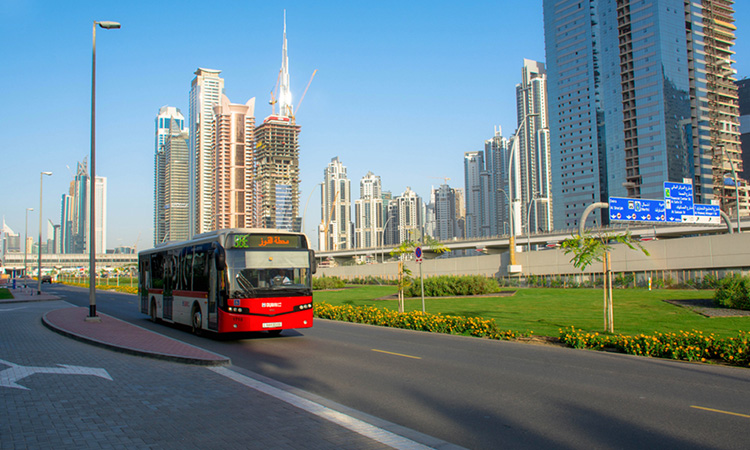

In February 2023, the Roads and Transport Authority (RTA) reported a 35% increase in Dubai’s public transport ridership in 2022. What factors do you believe have contributed to this steady growth across the city?
Dubai is one of the fastest growing cities in the world, with a steady and relatively high annual increase in population. RTA is determined to continuously increase the share of public transport in the city to achieve its strategic target of 25% of public transport share by 2030. This stems from RTA’s commitment to become a world leader in the provision of sustainable mobility.
RTA is determined to continuously increase the share of public transport in the city to achieve its strategic target of 25% of public transport share by 2030″
In order to achieve this, RTA provides several public transport mobility systems in an integrated and seamless fashion. This includes the metro (being the longest driverless metro in the world), tram, buses and marine transport, as well as focusing more on the first- and last-mile modes and services.
RTA is continuously working on expanding its services according to the city’s needs, as transportation demand is on the rise. Our plans include a significant expansion of the metro network and intermodal stations. The bus and marine fleets and networks are also subject to review and development on continuous bases and are being optimised with better technical, environmental and safety standards.
The authority is saving no efforts to ensure high level of service standards for public transport commuters, including reliability, punctuality and affordability, where the cost of public transport tickets and passes in Dubai is still among the cheapest in comparison to international cities. Our integrated ticketing system, NOL, and our loyalty programme, NOL+, is another main contributor to retaining our riders and attracting new arrivals with seamless transfer between modes.
RTA has a particular focus on state-of-the-art public transport planning, taking into consideration the results of periodically conducted customer satisfaction surveys. Several smart applications are also available for integrating public transport modes and allowing better journey planning, such as S-Hail. The S-hail Integrated Mobility Platform in Dubai offers customers access to the entire transit means in Dubai (metro, tram, buses, waterbus and taxis), as well as e-hail services – including Uber and Careem – through a single application, placing Dubai amongst the first cities in the world to develop such an integrated platform.
In addition, in 2022 in particular, some major events – including the full recovery from COVID-19, the Dubai Expo 2022 and the Qatar World Cup – have contributed to the significant increase in public transport ridership.
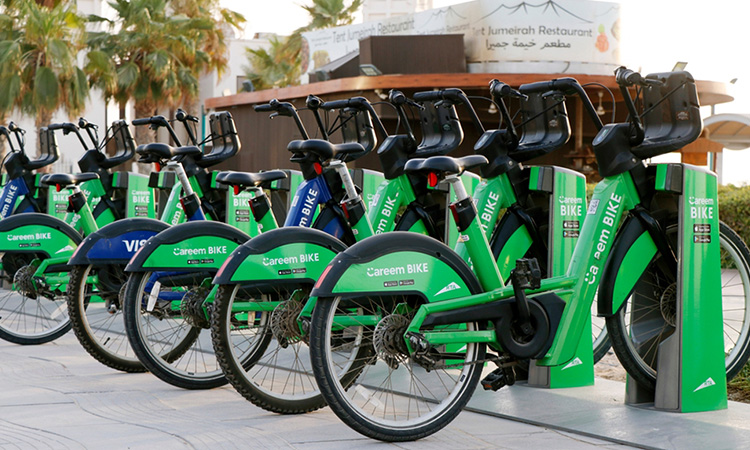

With the increase in ridership, what measures has RTA put in place to ensure that public transport is efficient, reliable and safe?
RTA looks at commuter trips from origin to destination, thus providing a number of first- and last-mile options, including feeder buses, bus on-demand, cycling tracks, pedestrian pathways and several new shared mobility options, namely car, bike and scooter-sharing. RTA is determined to ensure the faster adoption of new modes and better co-ordination among existing modes.
RTA is determined to ensure the faster adoption of new modes [of transport] and better co-ordination among existing modes”
The authority endeavours to ensure the safety, efficiency and reliability of public transport via measures including training and qualifying public transport drivers to safety standards, and the provision of integrated information, standards, smart applications and fare collection to ensure a seamless travel experience. In addition, RTA ensures the sustainability of its public transport assets via state-of-the-art asset management systems. It has also launched packages of smart services to clients’ mobile devices to transform Dubai into one of the smartest cities in the world, including the Customers Loyalty Points Programme (NOL+), which enables NOL card users to earn points when using their cards when commuting using public transit means.
RTA systems produce huge amounts of data, which is why RTA launched the Enterprise Command & Control Centre (EC3), one of the largest and most modern control centres in the world, which harnesses a range of intelligent technologies to integrate all transport modes across Dubai, as well as their respective Operational Control Centers and the Traffic Control Centers across RTA. The EC3 is designed to play a central role in incidents, emergencies and crises management and to support the organisation in the management and delivery of major and international events. For example, EC3 played the main role in integrating and managing mobility services during Dubai Expo 2020.
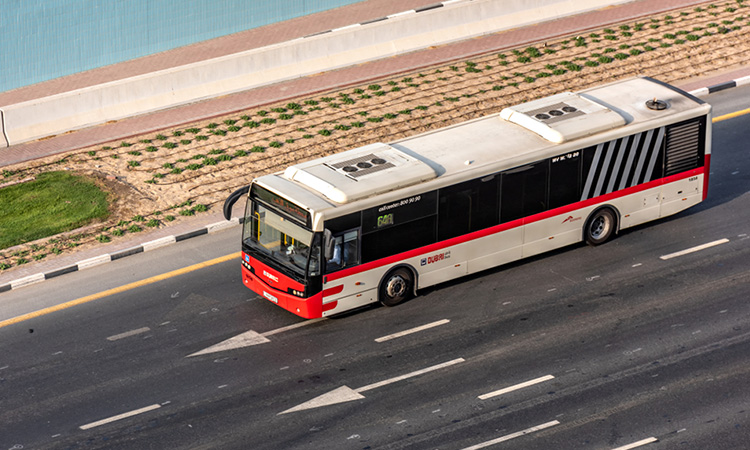

What are some of the key sustainability initiatives that RTA has implemented to reduce the carbon footprint of public transport in Dubai?
RTA aims to achieve net zero emissions from public transport in Dubai by 2050. In order to help achieve this, a decarbonisation strategy has been developed. The strategy, consisting of a number of pillars and initiatives, is estimated to reduce 10 million tonnes of carbon emissions and reduce the operational costs by AED 3.3 billion. Key points of the strategy include:
- Decarbonisation of public buses – 100% by 2050
- Decarbonisation of taxis and limousine vehicles (Dubai Taxi Corporation (DTC)) – 100% by 2040
- Decarbonisation of taxis and limousine vehicles (other companies) – 100% by 2040
- Decarbonisation of school buses in DTC – 100% by 2050.
This includes converting the entire RTA fleet of fuel-operated public buses, taxis and school buses to the adoption of clean fuels and to be running on electricity and hydrogen by 2050.
Currently, hybrid and electric taxis and limousines are in operation – representing 58% of the DTC fleet – as well as more efficient public buses, which are equipped with environmentally friendly Euro 6 engines that are compatible with the European specifications for carbon emissions.
Dubai is planning to introduce integrated service centres with all of the necessary facilities that allow residents to reach their destinations within a 20-minute timeframe on foot or by bicycle”
In addition, RTA is part of the 20 Minutes City, where Dubai is planning to introduce integrated service centres with all of the necessary facilities that allow residents to reach their destinations within a 20-minute timeframe on foot or by bicycle through facilitating sustainable pedestrian, bicycle and transportation trips across the city. The plan involves the provision of public transport stations within an 800m radius for 55% of residents, thereby enabling them to reach 80% of their daily needs and destinations.
RTA is also encouraging the uptake of vehicles and modes with zero or low carbon emissions and developing an infrastructure that is resilient to climate change. One of the initiatives in this regard is the transformation of street lighting into LED type lighting, with a smart control centre to monitor and manage the levels of lighting and the dimming of road lights, as per the need. In partnership with the private sector, RTA is working on a full plan to put this into action.
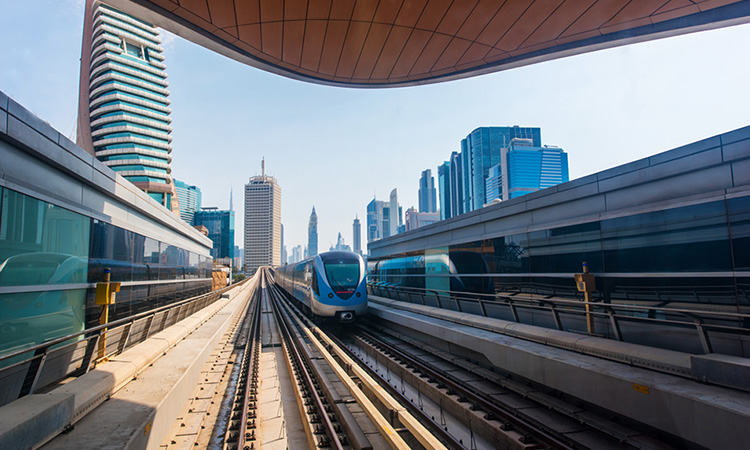

How does RTA ensure that its public transport services are accessible to all members of the community, including those with disabilities or special needs?
Both Dubai Metro and Dubai Tram offer a special cabin for women and children. In buses and on marine transport, we offer priority seating for women and children, and offer free rides for children on the metro and tram.
Furthermore, RTA also offers pink taxis that are driven by women.
Our public transport modes are 90% compliant with Dubai Code for the Built Environment, which is the local accessibility code that was designed specifically for the city”
Our infrastructure is highly accommodating for people with disabilities, seniors and mothers using pushchairs. Our public transport modes are 90% compliant with the Dubai Code for the Built Environment, which is the local accessibility code that was designed specifically for the city.
For the Dubai Metro specifically, compliance of both rolling stock and stations with the Dubai Code exceeds 90%, and this is even higher for Dubai Metro Route 2020 stations.
RTA also offers many services for people of determination (POD), including a dedicated taxi fleet, free NOL card, free parking card and dedicated parking, in addition to financial incentives to POD drivers. All RTA staff in public transport stations and modes have also been trained on how to best accommodate for POD.
In addition, the authority has launched a school bus fleet that is dedicated to students who have disabilities.
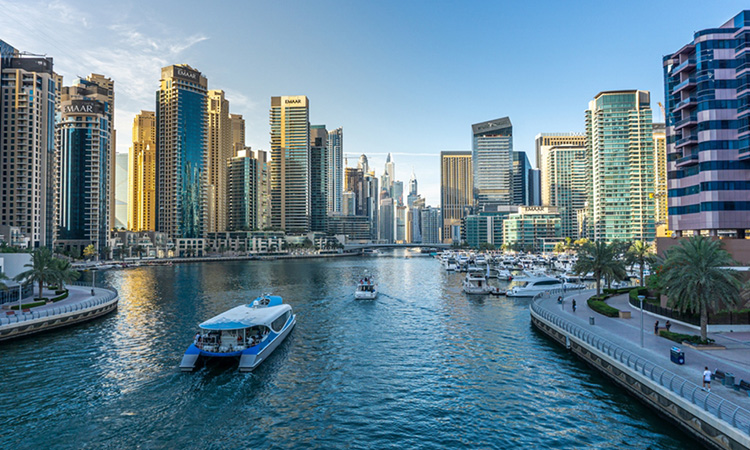

How does RTA plan to further develop and expand the integrated public transport network in Dubai in the coming years?
The major public transport developments and expansions in the coming years include… developing infrastructure that is friendly to all and encouraging non-conventional transit means”
RTA works according to the Strategic Roads and Transportation Plans, which are updated on a continuous basis to serve the expected urban and economic development in Dubai. This plan identifies the needed expansions in both roadway and public transport networks, along with the priorities and timeframes of these expansions. The major public transport developments and expansions in the coming years include metro line and bus network enhancements, dedicated bus lanes, developing infrastructure that is friendly to all and encouraging non-conventional transit means, such as walking, biking, e-scooter, on-demand buses and shared mobility means, as well as providing components of integrated transport, including serving the needs of people of determination (persons with disabilities).


Related topics
Active travel, Air Quality, Micro-mobility, Mobility Services, Passenger Experience, Public Transport, Sustainable Urban Transport
Related modes
Bikes & Scooters, Bus & Coach, Taxi, Tram
Related cities
Dubai
Related countries
United Arab Emirates
Related organisations
Dubai Metro, Dubai Roads and Transport Authority (RTA), Dubai Taxi Corporation (DTC)
Related people
Hussain Al Banna








